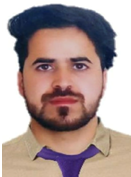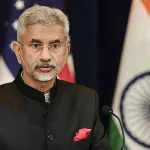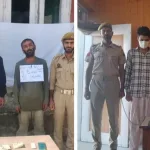Language is not merely a tool of communication; it is the soul of a culture, the identity of a people, and the heartbeat of a civilization. In the case of Kashmir, our mother tongue, Kashmiri (Koshur) is slowly fading from the tongues of its own children. A silent tragedy is unfolding, and few seem to notice its gravity.
Today, an alarming reality confronts us: if a child speaks in English or Urdu, it is considered a sign of progress, modernity, and intellect. But if the same child speaks in Kashmiri, many parents feel uncomfortable, even embarrassed. This disturbing trend is spreading like a quiet epidemic. What kind of future are we shaping where our own language becomes a symbol of backwardness instead of pride?
In every corner of Kashmir, from central Kashmiri’s bustling lanes to the serene villages of North and south Kashmir, the echoes of Kashmiri are slowly being replaced by foreign sounds. Many children in our society today can barely speak a sentence in Kashmiri. Their exposure to the language is limited to what they hear from grandparents, if at all. Homes have become silent in their own mother tongue.
Sheikh-ul-Alam, the spiritual beacon of Kashmir, once said:
“Yem rozan Koshur, ti kyah rozan rang?”
(Those who abandon their language, what else will they preserve?)
These words are not just a poetic lament, they are a warning. When a language dies, it takes with it centuries of wisdom, values, folklore, proverbs, and memory. With the death of Kashmiri, we are not merely losing words, we are losing ourselves.
The roots of this shift lie not only in changing educational patterns but also in our societal attitudes. Many parents, in a bid to see their children succeed globally, mistakenly believe that abandoning Kashmiri is necessary for advancement.
While English and Urdu are very essential languages for professional and academic growth, but at the same time they should not replace but rather complement our mother tongue.
A tree without roots cannot stand. Similarly, a generation without its language is hollow, disconnected from its essence, from the stories of its ancestors, and from the land that nurtured it.
It is a myth that one cannot succeed while holding on to their mother tongue. On the contrary, studies across the world have shown that children who are fluent in their native language often develop stronger cognitive skills and have a more grounded identity. Language is power, but only when it is embraced, not denied.
So where do we go from here?
The answer lies in reclaiming pride. We must reawaken the love for Kashmiri in our hearts and homes. Speak to your children in Kashmiri. Share folk stories, proverbs, riddles, and songs. Celebrate its poetic beauty, its softness, and its depth.
Let Kashmiri be taught not as an option but as a cultural necessity. Let our youth write poetry in Kashmiri, make films, record podcasts, and publish books in our own language.
We must also remove the stigma that Kashmiri is a ‘poor man’s language.’ It is a language of saints, sages, scholars, and revolutionaries. It is the language of Habba Khatoon, Lal Ded, and Sheikh-ul-Alam , voices that carried the spirit of Kashmir through centuries of turbulence and triumph.
Sheikh-ul-Alam once declared:
“Agar Kari Koshur yeli chei moji wathwan, ti chei paanas wuchhun andar”
(If you understand Kashmiri when your mother speaks, you understand yourself)
Let us reflect: how can we truly know ourselves if we don’t understand the language of our mothers, our soil, and our saints?
It is time to wake up. The fading of Kashmiri is not a natural death; it is the result of our neglect. But hope still breathes, so long as we choose to speak, to teach, to preserve, and to promote.
We must teach our children that speaking Kashmiri is not something to be ashamed of; it is something to be proud of. Alongside English and Urdu, our children must learn Kashmiri from their early years. Let them grow up knowing that their mother tongue carries the fragrance of their roots, the wisdom of their ancestors, and the soul of their identity.
Tell your children: “Speak Kashmiri with pride. It is the language of your mother, your land, your saints, and your soul.” Let every home become a space where Kashmiri is spoken with love, where our next generation grows up not just fluent in global languages, but deeply connected to their own.
Let us not allow a day to come when museums and archives are the only places where Kashmiri survives. Let it live in our homes, our streets, our songs, and our hearts.
Speak Kashmiri. Love Kashmiri. Save Kashmiri
(Author is a columnist and can be reached at: [email protected])








